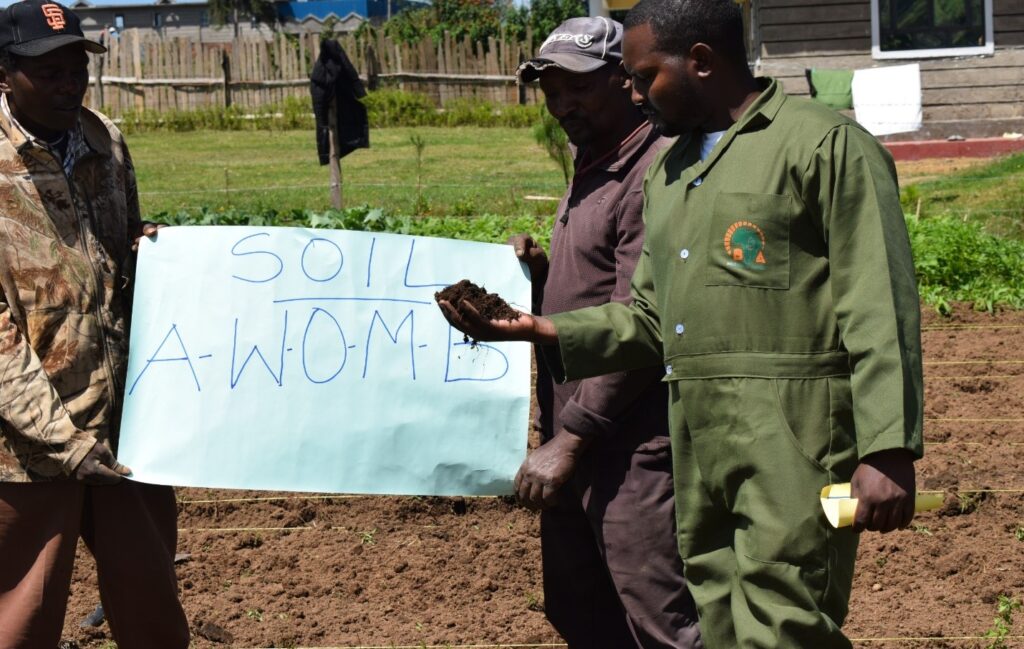Donor: Ecology Action
Period: 2021-2024

The Global GROW BIOINTENSIVE® Farmable Soil Fertility Strengthening Initiative aims to address the critical issues facing global soil health through the implementation of the Soil Test Analysis and Amendment Recommendation (STAAR) Training program and the establishment of 10-Bed Unit Soil Test Stations (STS) across diverse environments. This initiative is a response to the alarming prediction that only 22.5 years of farmable soil remain worldwide, compounded by the United Nations Food and Agriculture Organization’s warning of water scarcity threatening 5.5 billion people by 2025. By leveraging the GROW BIOINTENSIVE® method, which has been refined over 47+ years and implemented in 152 countries, the initiative seeks to enhance soil fertility, conserve resources, and increase food production sustainably on significantly smaller plots of land compared to conventional farming.
The STAAR Training program will develop a network of highly skilled soil test analysts and amendment recommenders who can provide precise and sustainable soil fertility solutions. This three-year comprehensive training will include online courses, one-on-one mentoring, and practical fieldwork, covering topics such as soil science fundamentals, soil testing, and the development of tailored soil amendment recommendations. By expanding the pool of qualified soil fertility experts, the initiative ensures that the GROW BIOINTENSIVE® method can be accurately applied and maintained across various global contexts, ultimately fostering a resilient agricultural system capable of withstanding ecological and economic challenges.
The 10-Bed Unit Soil Test Stations (STS) will serve as hubs for demonstrating and researching the GROW BIOINTENSIVE® method’s effectiveness in diverse climates and soil types. Each STS will establish ten 100-square-foot beds to test soil fertility and implement organic amendments based on STAAR recommendations. These units will produce their own compost, maintain soil fertility, and be continuously monitored and adjusted to optimize yields sustainably. Additionally, the STSs will collaborate with local farms to replicate the 10-Bed Unit designs, collect extensive data, and validate the method’s scalability and adaptability. Through this initiative, Ecology Action aims to create a global network of sustainable mini-farms that can provide a complete, balanced diet with minimal resource input, addressing both food security and environmental sustainability on a worldwide scale.
